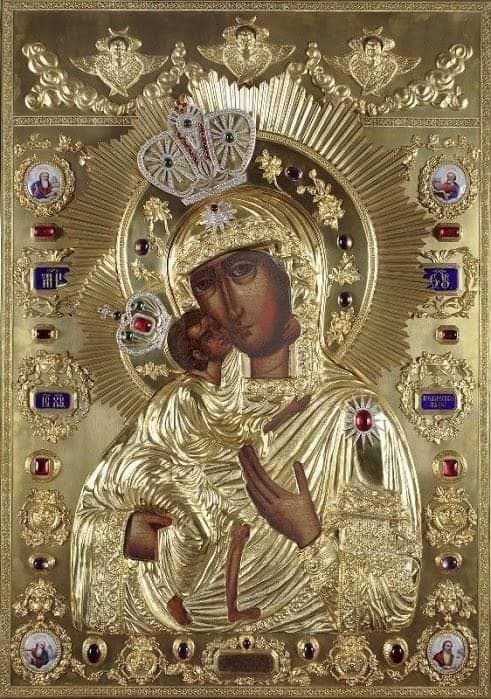The fate of Christians in Syria’s second-largest city, Aleppo, is uncertain, having been seized by an Islamist group dominated by the Syrian branch of al-Qaeda and other factions hostile to the Assad regime. The HTS group, whose Arabic name means “Organization for the Liberation of the Levant,” controlled parts of northwestern Syria before taking Aleppo. Although the group has toned down its rhetoric about establishing an Islamic caliphate, according to the New York Times, the group still wants to replace the government in Damascus with one inspired by Islamist principles.
On November 30, the jihadists imposed a 24-hour curfew. They have assured the population that they will not use violence against civilians or buildings. A local Christian priest, who wished to remain anonymous, told La Croixq that the armed groups indeed “have not touched anything, but this is only the beginning. We have no idea what can happen after this. Time has stopped for Christians.” The cleric wonders how a city of 4 million people without functioning institutions will be governed.
A local bishop also told Aleteia that in the first days after the capture of the country’s economic and cultural center, the situation was calm but very uncertain: “The attackers took care to reassure the citizens and promise them security and tranquility. Let’s hope they will keep their promises.” However, people fear that the city of many millions will still become an arena for military action with the Syrian army: “In a murderous civil war, death will reap both combatants and innocents.”
More than 350 people have already been killed and thousands displaced, and the toll is expected to rise, said Cardinal Mario Zenari, the nuncio in Damascus. The Franciscan monastery complex in Aleppo was badly damaged by a Russian airstrike on December 1, but the monks said there were no casualties among them. “Syrians only want to flee their country after so many years of conflict, extreme poverty, international sanctions, an earthquake and a new wave of violence,” said Cardinal Zenari. Since the war began in 2011, Aleppo has welcomed many Christians, refugees from Idlib, in northwestern Syria, a stronghold for rebels and jihadists. These families have tried to rebuild their lives in Aleppo, but now their fears are returning and many have fled the city. In 2011, Aleppo had about 250,000 Christians, most of them Orthodox, or 12 percent of the city’s total population. As of 2017, there were fewer than 100,000 people; today, there are between 20,000 and 25,000.
The parish priest of St. Francis Church in Aleppo, Father Bahjat Karakach, said people were tired “and did not have enough energy to face another battle, the beginning of another war.” Decisive intervention by the international community was more urgent than ever, he said.
The Orthodox Greeks in Aleppo, known as the Levantine Greeks, have appealed to the Greek government in Athens to do everything possible to protect the Antiochian Greeks, who live mainly in Aleppo, Banias, Tartus and Damascus. Several dozen such families remain in the city. In their letter to the Greek foreign minister, they wrote: “In Aleppo, the children of our relatives and their families are living in great danger. Their lives are at risk, abandoned to their fate. Last month, they commemorated the tragic memory of the 1850 massacre in Aleppo, when Christian neighborhoods were destroyed, one of the reasons for this tragedy being the support of the Antiochian Greeks of Aleppo for the Greek Revolution. … For centuries we have suffered oppression – under the Ottomans and during Islamic rule – because we have never renounced our connection to Constantinople and the rest of Greece. Today, the Christians of Aleppo are alone. The regime has abandoned our neighborhoods, leaving us to face these challenges alone. Now we call on you, our brothers and sisters in faith and heritage, to act. Aleppo was once the greatest Christian city in the Levant, a center of Hellenic culture, faith, and art. Do not let it fall. Use all the diplomatic power of Greece to protect the Christians of Aleppo. Work with the nations – Turkey, the United States, and others – to ensure that this ancient community survives. “The children of Aleppo, whose ancestors supported Greece in its darkest times, are counting on you. The blood in their veins is the same as yours. Their future is linked to yours, as it always has been.”
The Greek Orthodox Metropolitan of Aleppo, Ephrem (Maalouli), of the Patriarchate of Antioch, has called on Orthodox Christians to pray and behave prudently, limiting unnecessary outings and maintaining calm. Greek diplomats told Greek Reporter that the historic Greek community in Aleppo is approximately 50 families and that all Greeks in Aleppo are safe. Metropolitan Ephrem was elected to the see in late 2021 after the then Metropolitan Paul (Yazigi), brother of the Patriarch of Antioch, was kidnapped by Islamist rebels in the vicinity of Aleppo in 2013 and has been missing since.
More than half a million people have been killed in Syria’s civil war, which erupted after the Syrian government cracked down on pro-democracy protests in 2011. The Assad regime is militarily supported by Russia, Iran and the Lebanese Hezbollah.
Estimates of the number of Christians in Syria in 2022 range from less than 2 percent to about 2.5 percent of the total Syrian population. Most Syrian Christians are members of the Orthodox Patriarchate of Antioch (700,000) or the Syro-Jacobite (Monophysite) Church. There are also Catholics, members of the Uniate Melkite Church.







